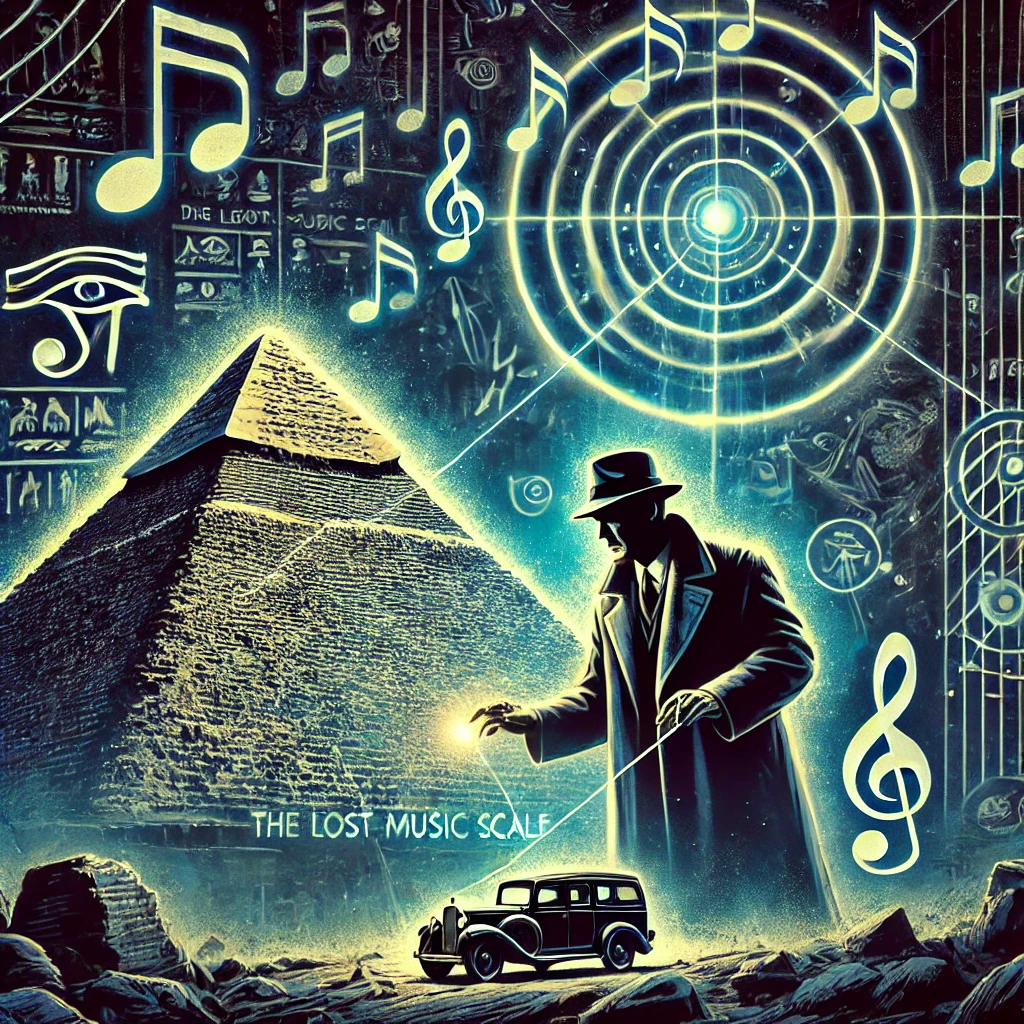The Lost Music Scale
Abstract
“Sereda also talked about various lost and esoteric musical tones, scales, and frequencies). He found a 10-tone scale inside the Great Pyramid which he said can shift consciousness and offer health benefits.”
Content
“…scientist, filmmaker, and spiritual explorer David Sereda spoke about invisible UFOs which vibrate at different frequencies, and sound waves and tones, and their relation to human consciousness. … Sereda also talked about various lost and esoteric musical tones, scales, and frequencies). He found a 10-tone scale inside the Great Pyramid which he said can shift consciousness and offer health benefits. Conversely, HAARP-like technologies and chemtrails are being used to make the atmosphere more frequency conductive, he said, and these effects can harm and damage the astral plane– an electrical subtle energy field that surrounds the planet.
https://www.youtube.com/watch?v=Sh-z__h HVP4&list=UUndmv2cfHrGelXujzL8fiYQ
Psalms 92:3
ten string lyre
ancient harp
10 note musical scale
no distortions between notes
no other music scale does this
The concept of a “lost music scale” is often associated with alternative theories about the historical development of musical scales and their potential significance in various cultural contexts. While there isn’t a universally recognized “lost” scale, some theories propose the existence of ancient or esoteric scales that have been lost or suppressed over time. Here are a few perspectives on the idea of a lost music scale:
- Pythagorean Tuning: One of the oldest theories regarding lost music scales is attributed to the Pythagoreans, an ancient Greek philosophical school. According to legend, Pythagoras discovered mathematical relationships between musical intervals, leading to the development of a scale based on simple whole-number ratios. This scale, known as Pythagorean tuning, fell out of favor with the development of equal temperament tuning in Western music but has been revisited by modern theorists interested in alternative tuning systems.
- Just Intonation: Just intonation is another tuning system based on simple whole-number ratios, similar to Pythagorean tuning. Some proponents of just intonation argue that it represents a “lost” or “forgotten” tuning system that is more harmonious and natural than the standard equal temperament tuning used in Western music. Just intonation enthusiasts advocate for the revival of this tuning system in contemporary music performance and composition.
- Non-Western Scales: The idea of a lost music scale also extends to non-Western musical traditions, where alternative scales and tuning systems are often found. For example, the Indian classical music tradition uses scales and modes (ragas) that differ from those found in Western music. Similarly, traditional music from cultures around the world may employ scales and tuning systems that are unfamiliar to Western ears but are deeply rooted in their respective cultural and historical contexts.
- Esoteric or Occult Scales: Some esoteric or occult traditions propose the existence of secret or hidden music scales with mystical or spiritual significance. These scales may be associated with specific rituals, ceremonies, or spiritual practices and are believed to have transformative or transcendent properties when used in music or sound therapy.
Overall, while the concept of a “lost music scale” is intriguing and has captured the imagination of musicians, theorists, and enthusiasts, it is essential to approach such ideas critically and skeptically. While there is undoubtedly diversity in musical scales and tuning systems across cultures and traditions, claims of lost or suppressed scales should be evaluated based on historical evidence, cultural context, and musical theory.
